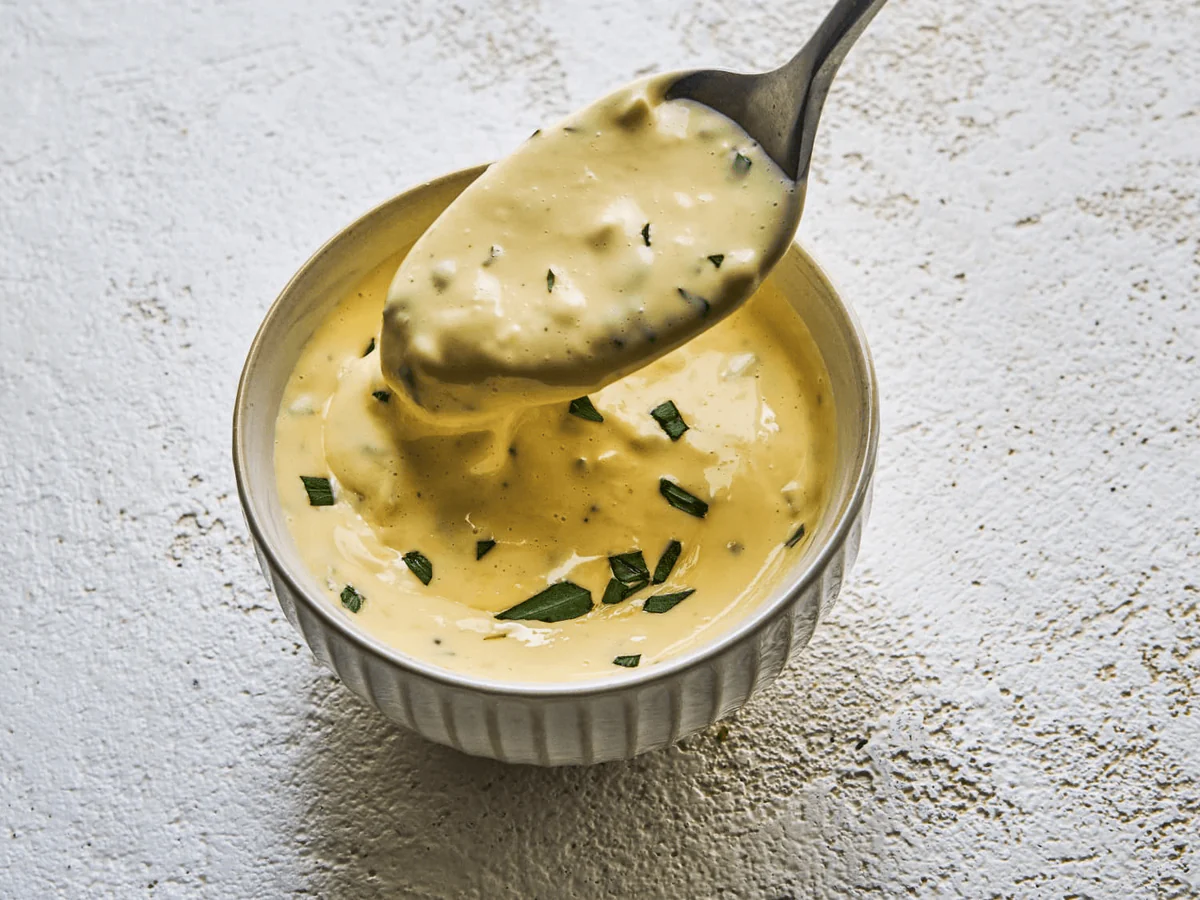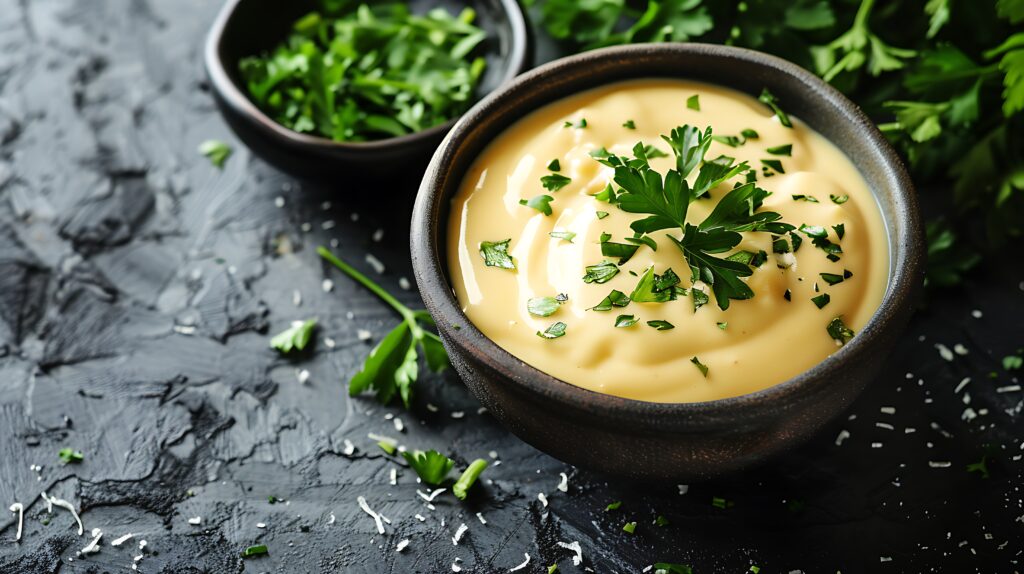- LIFE
The Ultimate Snickerdoodle Recipe You'll Love


Béarnaise sauce, a luscious and silky French classic, elevates any meal with its rich, tangy flavor. Its roots lie in the traditional hollandaise sauce, but it distinguishes itself with the aromatic addition of fresh herbs. This sauce is a staple in fine dining, yet it is accessible enough for home cooks to master. Whether you’re hosting an elegant dinner party or simply seeking to enhance a weeknight meal, understanding how to create and pair béarnaise sauce will transform your culinary repertoire.
The foundation of a perfect béarnaise sauce lies in its carefully selected ingredients. Key components include egg yolks, clarified butter, white wine vinegar, shallots, and fresh herbs such as tarragon and chervil. These elements combine to create béarnaise’s signature balance of creamy texture and vibrant flavor. The quality of each ingredient plays a significant role in the final taste, so opting for fresh, high-quality produce is essential.
Clarified butter provides the smooth, rich base for béarnaise sauce. It is made by gently heating butter to separate the milk solids and water from the pure butterfat. This process results in a more stable fat that can withstand higher temperatures without burning, essential for emulsifying the sauce.
Tarragon and chervil are the distinguishing herbs in béarnaise sauce. Tarragon offers a unique anise-like flavor, while chervil adds a subtle hint of parsley. Together, they infuse the sauce with a fresh, aromatic quality that complements its richness.

Creating béarnaise sauce requires precision and patience, but the results are undoubtedly rewarding. Below is a step-by-step guide to crafting this classic sauce in your kitchen.
Begin by combining the white wine vinegar and shallots in a small saucepan. Simmer until the liquid is reduced by half, then strain to remove the shallots. In a heatproof bowl, whisk the egg yolks until they thicken slightly. Place the bowl over a pot of simmering water, ensuring the bottom of the bowl does not touch the water. Gradually whisk in the clarified butter, a few drops at a time, until the sauce emulsifies and thickens. Stir in the reduced vinegar and herbs, and season with salt and white pepper.
Béarnaise sauce is traditionally served with steak, particularly filet mignon or ribeye, where its richness complements the meat’s savory flavors. It also pairs beautifully with grilled fish, chicken, and steamed vegetables, adding a luxurious touch to any dish.
While the classic béarnaise sauce is a culinary delight, experimenting with variations can introduce new dimensions to your meals. Here are four creative takes on this beloved sauce, each with its own unique twist.
For a zesty twist, incorporate fresh lemon juice into your béarnaise sauce.
This variation introduces red wine for a deeper flavor profile.
For those who prefer a milder herb flavor, this version omits tarragon.
Add a hint of heat with this spicy variation.
Béarnaise sauce is versatile, enhancing a wide range of dishes. Pairing it thoughtfully with meats and vegetables can create a harmonious dining experience.
The classic pairing of steak and béarnaise sauce is a match made in culinary heaven. The sauce’s creamy texture and tangy flavor balance the robust, savory taste of a perfectly cooked steak. Filet mignon, ribeye, and New York strip are particularly well-suited to this pairing, as the sauce accentuates their natural juices and tenderness.
Béarnaise sauce also complements seafood, bringing out the delicate flavors of fish such as salmon, halibut, and sea bass. The acidity from the vinegar and the freshness of the herbs highlight the sweetness of the seafood, creating a balanced and refined dish.
For a vegetarian option, béarnaise sauce can be drizzled over steamed or roasted vegetables. Asparagus, artichokes, and green beans benefit from the sauce’s richness, turning simple vegetables into a gourmet side dish.
Proper storage and reheating techniques are crucial to maintaining the quality of béarnaise sauce. Since it is an emulsion, it requires gentle handling to preserve its texture and flavor.
To store béarnaise sauce, transfer it to an airtight container and refrigerate for up to two days. The sauce may thicken slightly as it cools, but this is normal.
Reheat béarnaise sauce slowly over a double boiler, whisking constantly to prevent separation. Avoid direct heat, which can cause the sauce to curdle. If the sauce does break, a few drops of warm water whisked in can help to re-emulsify it.
If you find yourself with leftover béarnaise sauce, consider these inventive ways to incorporate it into other dishes, minimizing waste while maximizing flavor.
Transform your sandwiches by using béarnaise sauce as a spread. Its creamy texture and herbaceous flavor enhance grilled chicken or roast beef sandwiches, adding a gourmet touch to your lunch.
Replace traditional hollandaise sauce with béarnaise on eggs Benedict for a unique breakfast twist. The sauce’s tanginess pairs beautifully with poached eggs and Canadian bacon, offering a fresh take on a brunch classic.
Use béarnaise sauce as a luxurious pasta sauce by tossing it with cooked pasta and vegetables. Its rich flavor complements ingredients like mushrooms, spinach, and sun-dried tomatoes, creating a decadent dish.
Béarnaise sauce, with its rich history and versatile applications, remains a beloved addition to both classic and contemporary cuisine. By mastering its preparation and exploring creative pairings and variations, home cooks and food enthusiasts alike can elevate their cooking to new heights.